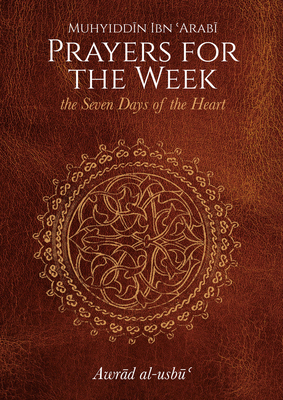






Prayers for the Week is a very special collection of daily prayers by Ibn ʿArabi and is regarded as one of the most magnificent and beautiful in the Sufi tradition.
There are fourteen prayers, one for each night and day of the week, with an extra introductory prayer. They include an unparalleled depth of knowledge of Union (tawḥīd), and for the one who recites them, they are as much educational as devotional.
This book is an expanded and fully revised version of The Seven Days of the Heart, which was first published in 2000. Over the intervening years we have consulted a very large number of manuscript copies of the Awrād in libraries throughout the world, and compare different readings and lines of transmission. The result is that for the first time we are able to provide an Arabic edition, based on the oldest and best manuscripts available, as well as a full transliteration of the prayers for non-Arabic speakers, and an updated translation and notes, with an accompanying recitation recording. We also decided to reflect the generally accepted title of these prayers by changing the main title to Prayers for the Week



A major work of mystical literature, this account focuses on 14 visions in the form of dramatic conversations with the divine, interspersed with dazzling visionary episodes regarding the nature of existence, humans' relationship with reality, and the way to achieve true happiness. The introduction presents a resume of Ibn 'Arabi's life and examines in detail the style and symbolism of the contemplations. Presented for the first time in English, this work is a superb example of Ibn 'Arabi's inimitable style and deep perception.


Ibn 'Arabi is one of the greatest writers of mystical literature of any era. The voyages recounted in the enigmatic Secrets of Voyaging offer readers an inexhaustible source of reflection on the nature of the journeys of life. This unique book explores the theme of voyage and spiritual unveiling as it plays out simultaneously in the cosmological, scriptural, and mystical domains. This first English translation includes the Arabic text, based on a manuscript in Ibn 'Arabi's own hand and is accompanied by the translator's introduction and extensive notes and commentary.


